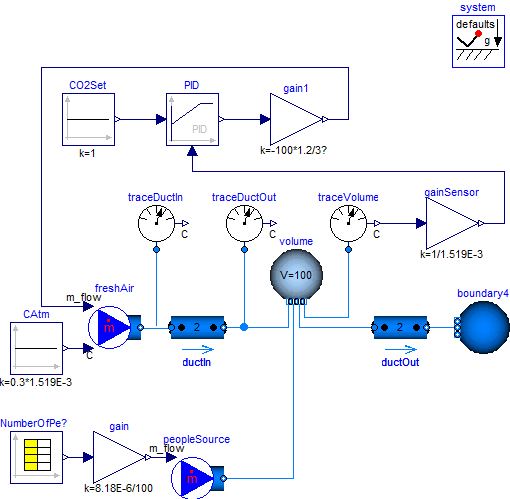This example illustrates a room volume with a CO2 source and a
fresh air supply with feedback control. The CO2 emission rate is
proportional to the room occupancy, which is defined by a schedule.
The fresh air flow rate is controlled such that the room CO2
concentration does not exceed 1000 PPM (=1.519E-3
kg/kg). The fresh air has a CO2 concentration of 300
PPM which corresponds to a typical CO2 concentration in the
outside air.
The CO2 emission from the occupants is implemented as a mass
flow source. Depending on the activity and size, a person emits
about 8.18E-6 kg/s CO2. In the model, this value is
multiplied by the number of occupants. Since the mass flow rate
associate with the CO2 source model contributes to the volume's
energy balance, this mass flow rate should be kept small. Thus, in
the source model, we set the CO2 concentration to C={100}
kg/kg, and scaled the mass flow rate using
m_flow = 1/100 * nPeo * 8.18E-6 kg/(s*person)
where nPeo is the number of people in the room.
This results in a mass flow rate that is about 5 orders of
magnitudes smaller than the supply air flow rate, and hence its
contribution to the volume's energy balance is negligible.
The nominal value for the trace substance is set to
C_nominal={1.519E-3}. This scales the residual
equations that are used by the solver to the right order of
magnitude.

| Name | Description |
|---|---|
|
|